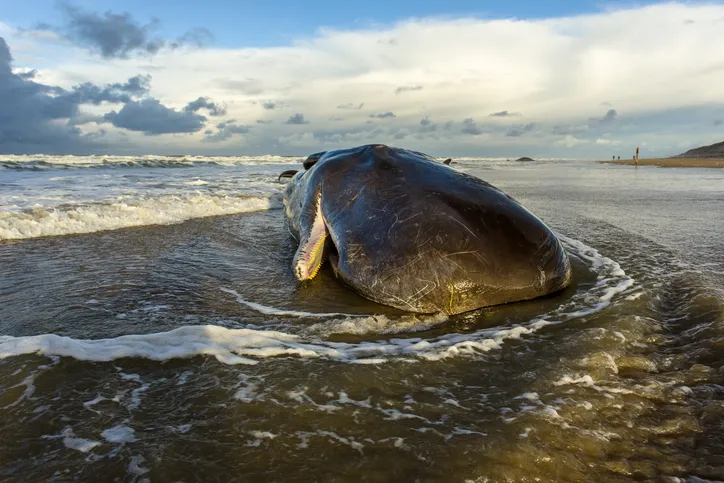In early 2016, 29 male sperm whales were found stranded on North Sea shorelines, including Germany, France, the Netherlands and the UK. A new study suggests that large solar storms, responsible for the northern lights, may have affected the whales’ navigation, causing them to beach in shallow water.
The research, published by the International Journal of Astrobiology, suggests that mass whale strandings have been documented since the Middle Ages, but their causes have often remained unclear.
The 2016 strangings were no less confusing, and in spite of the numerous autopsies, a conclusive cause of death for the animals was not achieved, the study reports.
“Apart from food remains, the gastrointestinal tracts of nine animals contained marine debris, though this was not considered to have been lethal,” says Dr Klaus Heinrich Vanselow and his colleagues.

“Whales’ magnetic sense may play an important role in orientation and migration, and strandings may thus be triggered by geomagnetic storms.”
The journal reports that sperm whales spend their early, non-breeding years at lower latitudes and may not be used to the high levels of magnetic disruptions experienced in the North Sea.

“’Naïve whales may therefore become disoriented in the southern Norwegian Sea as a result of failing to adopt alternative navigation systems in time and becoming stranded in the shallow North Sea.”
Find out more about the study.
Main image ©Getty

